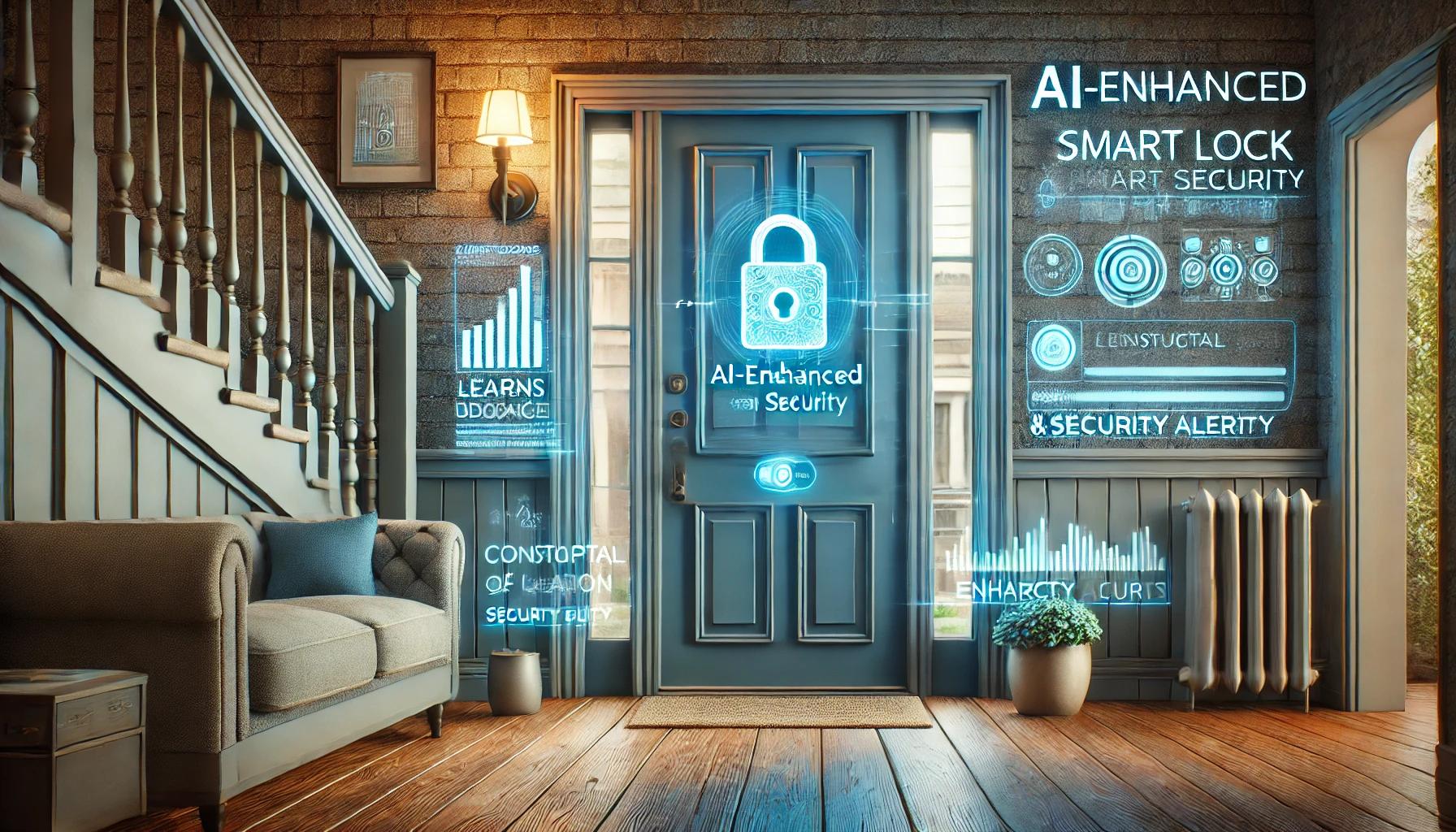AI-Enhanced Smart Locks: Revolutionizing Home Security with Contextual Awareness

Introduction: The Dawn of AI-Enhanced Smart Locks
Imagine a world where your front door knows you better than your best friend does. No, it's not the plot of a sci-fi movie—it's the reality ushered in by AI-enhanced smart locks. These aren't your run-of-the-mill locks; they're the new guardians of home security, blending artificial intelligence with everyday convenience. They learn your habits, adapt to your routines, and might even judge you for that midnight snack run. Kidding aside, AI-enhanced smart locks are transforming how we think about home security by introducing contextual awareness into our daily lives.
How AI Brings Contextual Awareness to Home Security
At the heart of these intelligent locks is the ability to understand and predict household patterns. By leveraging machine learning algorithms, smart locks analyze data such as the typical times residents leave and return home. Over time, they develop a comprehensive profile of household activities. For instance, if the lock notices that the front door usually opens around 7:30 AM on weekdays, it recognizes this as a part of the routine. Deviations from this pattern—like a door opening at 3 AM—trigger alerts, as the system detects an anomaly.
The Technical Side: Machine Learning Algorithms in Smart Locks
The magic behind these smart locks lies in sophisticated machine learning algorithms. These algorithms process vast amounts of data collected from sensors embedded in the locks. They employ techniques like time-series analysis and pattern recognition to discern regular activities from irregular ones. Some systems utilize reinforcement learning, where the AI improves its predictive capabilities based on feedback from the user's interactions. The result is a lock that doesn't just react but proactively secures your home based on learned behavior.
Benefits: Reduced False Alarms and Enhanced Security
One of the standout advantages of AI-enhanced smart locks is the significant reduction in false alarms. Traditional security systems might alert you every time a door opens, which can become a 'boy who cried wolf' scenario. According to a study by the Security Industry Association in 2022, over 90% of home security alerts are false alarms. By incorporating AI, smart locks differentiate between normal and suspicious activities, ensuring that when you get an alert, it's worth your attention. This not only enhances security but also provides peace of mind, knowing that your lock is on the lookout for genuine threats.
Privacy and Ethical Considerations
With great power comes great responsibility—or in this case, with great data comes great privacy concerns. AI-enhanced smart locks collect and process personal data, which raises questions about data security and user privacy. Manufacturers must ensure that data encryption and secure storage protocols are in place. Moreover, transparency about data usage is crucial. Users should be informed about what data is collected and how it's used. The ethical deployment of AI in home security hinges on respecting user privacy while providing enhanced protection.
Market Trends and Statistics
The market for smart home security systems is booming. As per a report by MarketsandMarkets in August 2023, the global smart lock market is projected to reach $4.4 billion by 2025, growing at a CAGR of 13.1% from 2020. This surge is driven by increasing awareness of home security and the adoption of IoT devices. Additionally, a 2023 survey by Statista found that 45% of consumers are interested in purchasing AI-powered security devices, indicating a significant shift towards smarter home protection solutions.
Future Developments in AI Home Security
The evolution of AI in smart locks is just the beginning. Future developments may include integration with other smart home devices, creating a fully interconnected security ecosystem. Imagine your lock communicating with your smart lights and security cameras to provide a holistic security solution. Advances in AI could also lead to biometric authentication methods becoming more sophisticated, using features like gait analysis for identification. The potential for innovation in this space is vast, promising even more secure and convenient home environments.
Conclusion: The Next Frontier in Home Security
As AI continues to permeate our daily lives, its role in home security becomes increasingly significant. AI-enhanced smart locks represent a leap forward, offering not just security but intelligent security that adapts to our lives. They reduce false alarms, enhance protection, and bring peace of mind—all while learning and evolving. So, are we ready to entrust our home's safety to an AI that knows us better than we might think? Perhaps it's time to embrace this technological advancement and ponder how it will shape the future of our personal security. What do you think about AI taking a more active role in securing our homes? Do you trust an intelligent lock to safeguard your sanctuary, or does the idea make you slightly uneasy? Share your thoughts and join the conversation on how AI is redefining home security.



